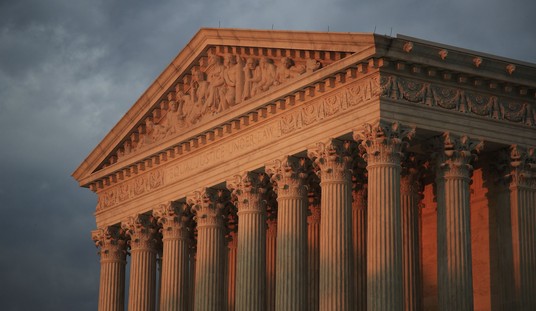This week, all hell broke loose in the media when Jeffrey Goldberg, left-leaning editor of The Atlantic, revealed that he had been accidentally included in a group chat with the top members of the Trump national security team. According to a Signal thread revealed by Goldberg, he was invited in by national security adviser Michael Waltz; other participants included Vice President JD Vance, Secretary of Defense Pete Hegseth, Secretary of State Marco Rubio, senior Trump adviser Stephen Miller and a multitude of other cabinet officials. The thread included an open consideration about whether and how to strike the terrorist Houthis in Yemen; it also culminated in announcements of imminent and then ongoing military action against the Houthis.
National security conversations should not include members of the press, of course. And presumably one of two things occurred: Either Waltz and his team meant to include the U.S. Trade Representative, Jamieson Greer (JG), and instead included Jeffrey Goldberg (JG); or someone changed one of the numbers in Waltz's phone such that a national security official's name appeared atop Goldberg's number. This is, of course, a serious mistake. It is not, however, a scandal of major magnitude.
There are two reasons for that.
First, this was obviously a mistake. It was not a purposeful leak of intelligence information to our enemies. And Hegseth has claimed that it did not include names, targets, locations, unites, routes, sources, methods or other classified information. This would mean that no criminal activity occurred.
Second, procedure-based scandals have gone the way of the dodo bird. When James Comey refused to prosecute Hillary Clinton in 2016 on the basis that she had not intended to disseminate classified information -- and that her negligent handling of classified information did not constitute lawbreaking -- he essentially wiped out all similar potential scandals in the future. When the Department of Justice doubled down on that approach with regard to President Joe Biden's classified documents violations, that perspective was reinforced. That's why when the DOJ targeted President Trump over classified documents violations, the right correctly responded with outrage.
Recommended
This scandal is procedural in nature. It doesn't match up to the ire unleashed by some of the Trump administration's loudest critics. One cannot help but guffaw while listening to Susan Rice -- who presided over the Russian invasion of Crimea as Obama's national security adviser, and then served in the Biden administration as he presided over the collapse of Afghanistan -- label the Signal chat "the biggest national security debacle that any professional can remember." Unless they have short-term memory loss, those professionals would presumably rule any of the Obama and Biden-era foreign policy disasters far greater national security debacles.
And herein lies the rub. One could quite properly gasp at the inclusion of a journalist in sensitive internal deliberations. But the Trump administration's deliberations, in material ways, were serious and cogent. Hegseth's justification for the strike on the Houthis was spot on: "This not about the Houthis. I see it as two things: 1) Restoring Freedom of Navigation, a core national interest; and 2) Reestablish deterrence, which Biden cratered." So was Waltz's: "Whether we pull the plug or not today European navies do not have the capability to defend against the types of sophisticated, antiship, cruise missiles, and drones the Houthis are now using. So whether it's now or several weeks from now, it will have to be the United States that reopens these shipping lanes."
In the end, this is what Americans will care about: Is the Trump administration steadfastly pursuing American security? Caterwauling about breaches of national security on procedural grounds, coming from precisely the same people who have materially destroyed American national security, simply won't play. Which is why Trump is right to ignore the critics and soldier on.























Join the conversation as a VIP Member